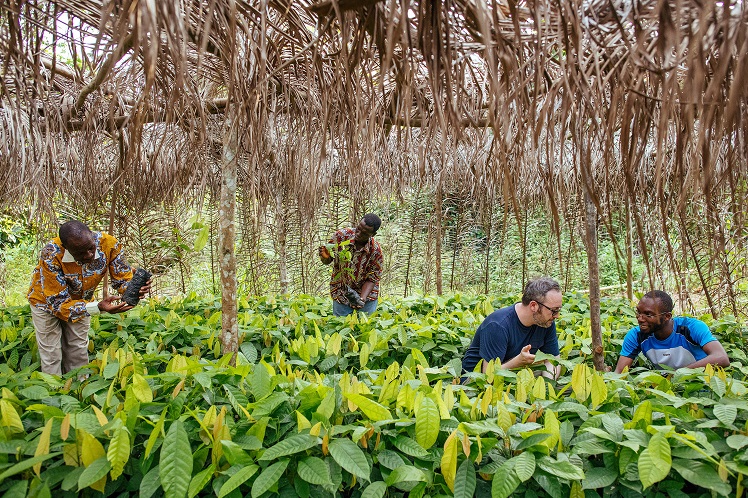Can we make our Easter more ethical?

With millions of chocolate eggs set to be exchanged this Easter, Tearfund ambassador Will Torrent is on a mission to make the tradition more ethical.
The British chocolatier, who trained under Heston Blumenthal before going on to work with Brian Turner and Gary Rhodes, is asking consumers to pay a little extra for a good quality, Fairtrade Easter egg.
Not only will it taste better, he assures, but it will also benefit the farmers who grow the cocoa.
"I always advise friends that when it comes to chocolate it's really worth paying a little more for a high quality, ethically sourced bar," he said.
"Chocolate is over commoditised to the point that we take it for granted, but cocoa is a precious ingredient that can only be grown in a very specific climate.
"We need to appreciate it's true value and be prepared to pay a price that reflects that."

For the best flavour, he recommends that buyers look for "single origin" chocolate that "really shows-off the subtleties of different varieties".
"Yes, it's true cocoa tastes different on either side of the Atlantic! High cocoa content is also a must for me - at least 60% or above. And certifications, such as the Fairtrade logo, help give you confidence that the farmers growing the beans are getting the best price for their hard work," he said.
Will recently travelled to the Ivory Coast with Tearfund to meet cocoa farmers there and see first hand how they grow and harvest the bean.
The Ivory Coast is one of the world's top producers of cocoa but the farmers are often impoverished, with the World Bank recently estimating that over half of the country's cocoa producers (54.9%) live below the poverty line.
This is in spite of the fact that the Ivory Coast supplies around 40 per cent of the world's cocoa.
According to Tearfund, the Ivory Coast may be one of the biggest exporters of cocoa, but it is only receiving back a fraction of the profit generated by the sector globally - between 5% and 7%.

"And what profit there is tends to be concentrated in the processing and distribution phases rather than with the farmers," the Christian development agency says.
During his visit to the country, Will was shown the entire process of making chocolate, from bean to bar, including the growing, harvesting, fermenting, drying, roasting and processing of cocoa.
He admits his visit to the Ivory Coast was an eye-opening experience.
"We need to be more connected to the cocoa farmers who grow the raw ingredients for the chocolate we love," he says.

"As a chocolatier I've seen photos and talked about the process of harvesting cocoa many times, but to see it first hand blew me away.
"On this visit I walked with a farmer through his plantation and learned what it's like to farm cocoa - which isn't as easy as you think. It's actually a very lengthy process compared to other crops such as coffee."
Tearfund is working with cocoa farmers in the Ivory Coast to help improve cultivation methods, adopt organic composting, teach budgeting skills, and grow a wider range of food crops to support their families and communities.
Reflecting on his time in the country, Will says: "Visiting Ivory Coast really made me think about the industry I am in.
"I eat chocolate every day and I encourage people to enjoy chocolate but we need to remember the farmers and where chocolate comes from."











